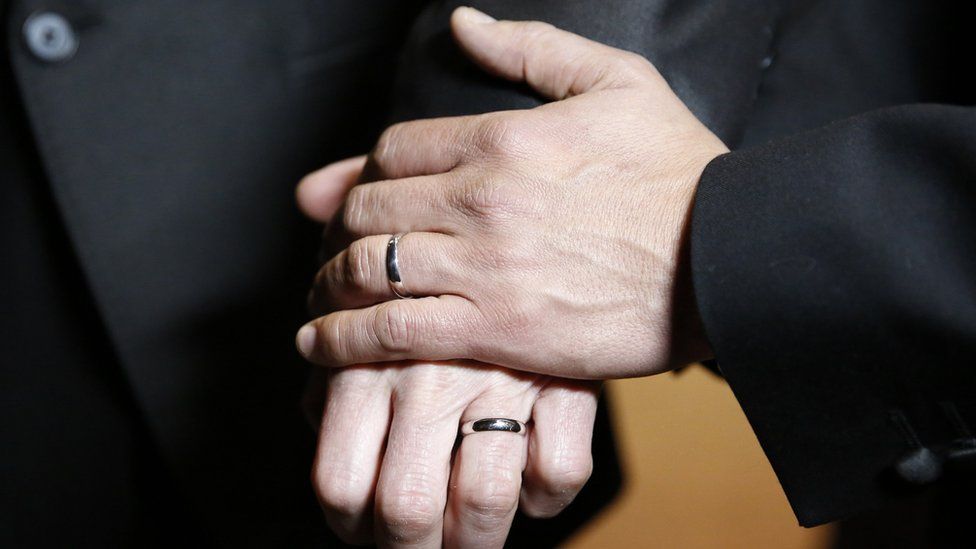-

-
-
Loading

Loading

The Church of England has passed a vote allowing special blessing services for gay couples in its parishes, marking a significant milestone. Although these services are not formal weddings, they will include prayers, the wearing of rings, confetti, and a blessing from the priest. The amendment to support these trial services passed by a single vote in the Church's parliament. The Church of England's official doctrine states that marriage is exclusively between a man and a woman. However, earlier this year, bishops agreed to permit prayers of blessings for gay relationships as part of broader services. It was initially believed that approval for standalone services would take over a year, but this recent vote means distinct services of blessing could now be allowed. Although there is no specific timeline for when these temporary trial services will commence, authorization could be granted in the coming weeks, with the first services taking place next year. The full formal process of authorization, which will take approximately two years, will continue alongside the trial period. The Bishop of Oxford, Rt Rev Stephen Croft, expressed his delight at the decision, emphasizing that the services would not be recognized as official weddings. He hopes that those who receive these prayers will feel fully welcomed into the life of the church. The Church of England's position on marriage contrasts with that of its Scottish Anglican equivalent and the Presbyterian Church of Scotland, both of which permit same-sex weddings. The Anglican Church in Wales offers an authorized service of blessing for gay couples but does not allow same-sex weddings in church. Jayne Ozanne, an influential LGBT campaigner on the Church of England's General Synod, urged the Church to reconsider its stance on gay marriage, criticizing it as deeply homophobic. On the other hand, conservative clergy view this decision as a significant turning point. Revd Canon John Dunnett, the national director of the Church of England Evangelical Council, expressed grief and sadness at the outcome, suggesting this move could create divisions among parishioners and damage clergy-bishop relationships.